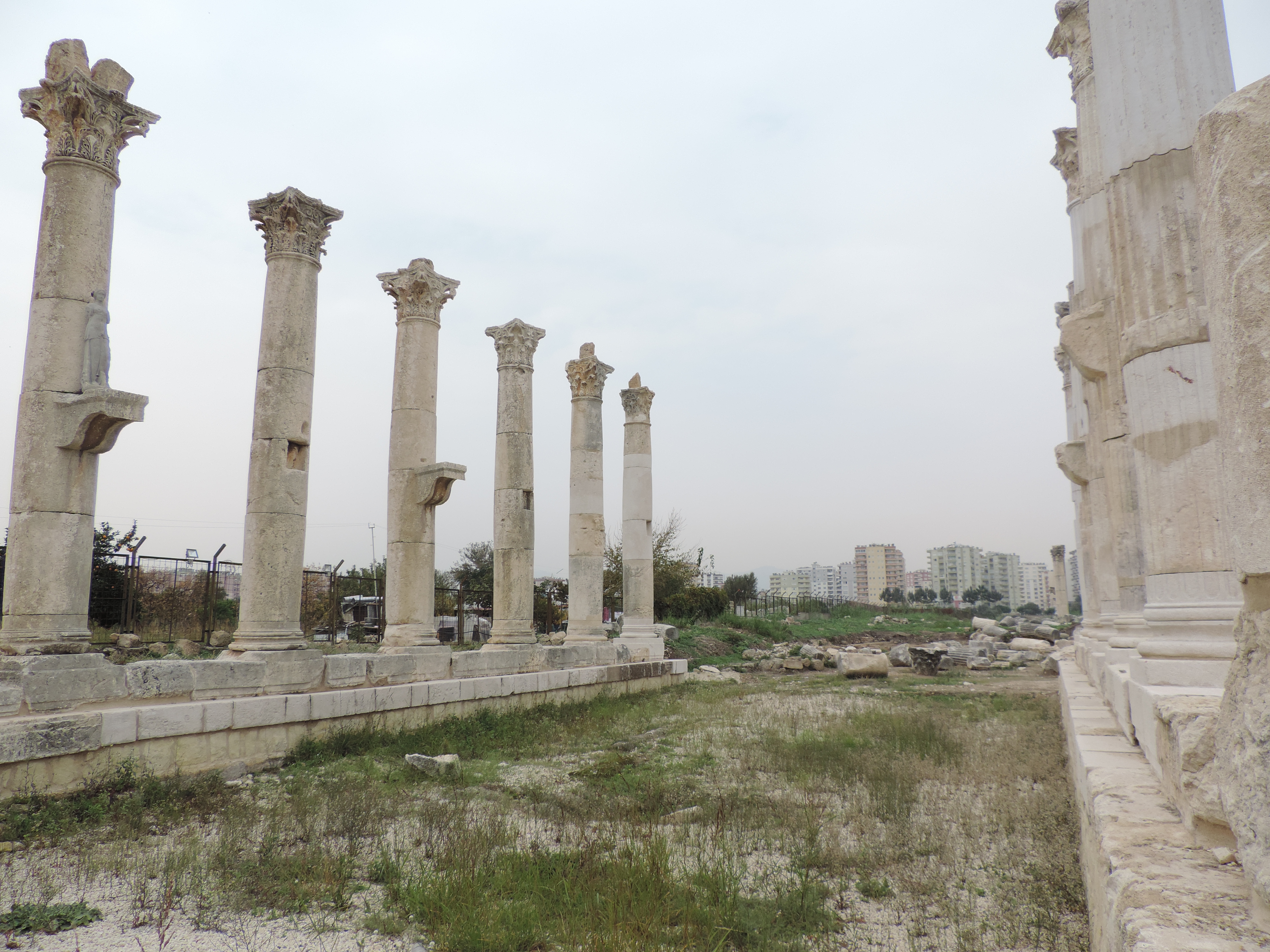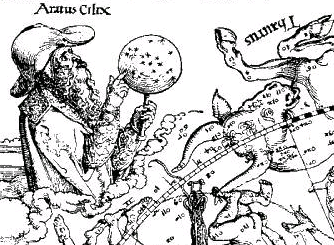|
Athenodorus Of Soli
Athenodorus of Soli ( grc, Ἀθηνόδωρος ὁ Σολεύς) was a Stoic philosopher, and disciple of Zeno of Citium, who lived in the 3rd century BC. He was the son of Athenodorus, and was born in the town of Soli, Cilicia, and was the compatriot of another disciple of Zeno, Chrysippus. Athenodorus was the brother of the poet Aratus of Soli,Suda, ''Aratos'' the author of the long didactic poem, ''Phaenomena''. Both brothers followed the teachings of Zeno. He is mentioned in the list given by Diogenes Laërtius Diogenes Laërtius ( ; grc-gre, Διογένης Λαέρτιος, ; ) was a biographer of the Ancient Greece, Greek philosophers. Nothing is definitively known about his life, but his surviving ''Lives and Opinions of Eminent Philosophers'' is a ... as the disciple of Zeno.Diogenes Laërtius, vii.'' He may be the dedicatee of the work ''On Definite Propositions'' ( el, Περὶ τῶν ϰαταγορευτιϰῶν) written by Chrysippus. Notes 3rd-century ... [...More Info...] [...Related Items...] OR: [Wikipedia] [Google] [Baidu] |
Stoicism
Stoicism is a school of Hellenistic philosophy founded by Zeno of Citium in Athens in the early 3rd century Common Era, BCE. It is a philosophy of personal virtue ethics informed by its system of logic and its views on the natural world, asserting that the practice of virtue is both necessary and sufficient to achieve Eudaimonia, (happiness, ): one flourishes by living an Ethics, ethical life. The Stoics identified the path to with a life spent practicing the cardinal virtues and living in accordance with nature. The Stoics are especially known for teaching that "virtue is the only good" for human beings, and that external things, such as health, wealth, and pleasure, are not good or called in themselves (''adiaphora'') but have value as "material for virtue to act upon". Alongside Aristotelian ethics, the Stoic tradition forms one of the major founding approaches to virtue ethics. The Stoics also held that certain destructive emotions resulted from errors of judgment, and th ... [...More Info...] [...Related Items...] OR: [Wikipedia] [Google] [Baidu] |
Zeno Of Citium
Zeno of Citium (; grc-x-koine, Ζήνων ὁ Κιτιεύς, ; c. 334 – c. 262 BC) was a Hellenistic philosopher from Citium (, ), Cyprus. Zeno was the founder of the Stoic school of philosophy, which he taught in Athens from about 300 BC. Based on the moral ideas of the Cynics, Stoicism laid great emphasis on goodness and peace of mind gained from living a life of virtue in accordance with nature. It proved very popular, and flourished as one of the major schools of philosophy from the Hellenistic period through to the Roman era, and enjoyed revivals in the Renaissance as Neostoicism and in the current era as Modern Stoicism. Life Zeno was born c. 334 BC, in Citium in Cyprus. His ancestry is disputed between Phoenician and Greek, because Citium contained both Phoenician and Greek inhabitants. Some historians consider him to have been of Phoenician descent, while other historians say that there is no real evidence for this, and consider him to be of Greek descent. A f ... [...More Info...] [...Related Items...] OR: [Wikipedia] [Google] [Baidu] |
Soli, Cilicia
Soli ( grc, Σόλοι, ''Sóloi''), often rendered Soli/Pompeiopolis ( grc, Πομπηϊούπολις), was an ancient city and port in Cilicia, 11 km west of Mersin in present-day Turkey. Geography Located in Southern Anatolia, on the edge of the timber-rich Taurus Mountains and fertile Cilician alluvial plain, Soli was constantly at or near regional boundaries; Kizzuwatna and Tarḫuntašša during Luwian/ Hittite occupation, and Cilicia Trachea and Cilicia Pedia during Graeco-Roman period. This, coupled with the city's good harbor and proximity to the Cilician Gates ensured that Soli was consistently of strategic importance throughout ancient history. History Neolithic Archaeological evidence indicates a human presence in the area as early as 7000 BCE at the Yumuktepe mound, 9 km to the northeast. Late Bronze Age The first known Luwian settlements and fortifications at Soli proper date the 15th century BCE, and the city was an active port from that time ... [...More Info...] [...Related Items...] OR: [Wikipedia] [Google] [Baidu] |
Chrysippus
Chrysippus of Soli (; grc-gre, Χρύσιππος ὁ Σολεύς, ; ) was a Greek Stoic philosopher. He was a native of Soli, Cilicia, but moved to Athens as a young man, where he became a pupil of the Stoic philosopher Cleanthes. When Cleanthes died, around 230 BC, Chrysippus became the third head of the Stoic school. A prolific writer, Chrysippus expanded the fundamental doctrines of Cleanthes' mentor Zeno of Citium, the founder and first head of the school, which earned him the title of the Second Founder of Stoicism. Chrysippus excelled in logic, the theory of knowledge, ethics, and physics. He created an original system of propositional logic in order to better understand the workings of the universe and role of humanity within it. He adhered to a deterministic view of fate, but nevertheless sought a role for personal freedom in thought and action. Ethics, he thought, depended on understanding the nature of the universe, and he taught a therapy of extirpating the unrul ... [...More Info...] [...Related Items...] OR: [Wikipedia] [Google] [Baidu] |
Aratus Of Soli
Aratus (; grc-gre, Ἄρατος ὁ Σολεύς; c. 315 BC/310 BC240) was a Greek didactic poet. His major extant work is his hexameter poem ''Phenomena'' ( grc-gre, Φαινόμενα, ''Phainómena'', "Appearances"; la, Phaenomena), the first half of which is a verse setting of a lost work of the same name by Eudoxus of Cnidus. It describes the constellations and other celestial phenomena. The second half is called the ''Diosemeia'' (Διοσημεῖα "Forecasts"), and is chiefly about weather lore. Although Aratus was somewhat ignorant of Greek astronomy, his poem was very popular in the Greek and Roman world, as is proven by the large number of commentaries and Latin translations, some of which survive. Life There are several accounts of Aratus's life by anonymous Greek writers, and the Suda and Eudocia also mention him. From these it appears that he was a native of Soli in Cilicia, (although one authority says Tarsus). He is known to have studied with Menecrates ... [...More Info...] [...Related Items...] OR: [Wikipedia] [Google] [Baidu] |
Diogenes Laërtius
Diogenes Laërtius ( ; grc-gre, Διογένης Λαέρτιος, ; ) was a biographer of the Ancient Greece, Greek philosophers. Nothing is definitively known about his life, but his surviving ''Lives and Opinions of Eminent Philosophers'' is a principal source for the history of ancient Greek philosophy. His reputation is controversial among scholars because he often repeats information from his sources without critically evaluating it. He also frequently focuses on trivial or insignificant details of his subjects' lives while ignoring important details of their philosophical teachings and he sometimes fails to distinguish between earlier and later teachings of specific philosophical schools. However, unlike many other ancient secondary sources, Diogenes Laërtius generally reports philosophical teachings without attempting to reinterpret or expand on them, which means his accounts are often closer to the primary sources. Due to the loss of so many of the primary sources on whic ... [...More Info...] [...Related Items...] OR: [Wikipedia] [Google] [Baidu] |
3rd-century BC Greek People
The 3rd century was the period from 201 ( CCI) to 300 (CCC) Anno Domini (AD) or Common Era (CE) in the Julian calendar.. In this century, the Roman Empire saw a crisis, starting with the assassination of the Roman Emperor Severus Alexander in 235, plunging the empire into a period of economic troubles, barbarian incursions, political upheavals, civil wars, and the split of the Roman Empire through the Gallic Empire in the west and the Palmyrene Empire in the east, which all together threatened to destroy the Roman Empire in its entirety, but the reconquests of the seceded territories by Emperor Aurelian and the stabilization period under Emperor Diocletian due to the administrative strengthening of the empire caused an end to the crisis by 284. This crisis would also mark the beginning of Late Antiquity. In Persia, the Parthian Empire was succeeded by the Sassanid Empire in 224 after Ardashir I defeated and killed Artabanus V during the Battle of Hormozdgan. The Sassanids t ... [...More Info...] [...Related Items...] OR: [Wikipedia] [Google] [Baidu] |
3rd-century BC Philosophers
The 3rd century was the period from 201 ( CCI) to 300 ( CCC) Anno Domini (AD) or Common Era (CE) in the Julian calendar.. In this century, the Roman Empire saw a crisis, starting with the assassination of the Roman Emperor Severus Alexander in 235, plunging the empire into a period of economic troubles, barbarian incursions, political upheavals, civil wars, and the split of the Roman Empire through the Gallic Empire in the west and the Palmyrene Empire in the east, which all together threatened to destroy the Roman Empire in its entirety, but the reconquests of the seceded territories by Emperor Aurelian and the stabilization period under Emperor Diocletian due to the administrative strengthening of the empire caused an end to the crisis by 284. This crisis would also mark the beginning of Late Antiquity. In Persia, the Parthian Empire was succeeded by the Sassanid Empire in 224 after Ardashir I defeated and killed Artabanus V during the Battle of Hormozdgan. The Sassanids th ... [...More Info...] [...Related Items...] OR: [Wikipedia] [Google] [Baidu] |
Hellenistic-era Philosophers From Anatolia
In Classical antiquity, the Hellenistic period covers the time in Mediterranean history after Classical Greece, between the death of Alexander the Great in 323 BC and the emergence of the Roman Empire, as signified by the Battle of Actium in 31 BC and the conquest of Ptolemaic Egypt the following year. The Ancient Greek word ''Hellas'' (, ''Hellás'') was gradually recognized as the name for Greece, from which the word ''Hellenistic'' was derived. "Hellenistic" is distinguished from "Hellenic" in that the latter refers to Greece itself, while the former encompasses all ancient territories under Greek influence, in particular the East after the conquests of Alexander the Great. After the Macedonian invasion of the Achaemenid Empire in 330 BC and its disintegration shortly after, the Hellenistic kingdoms were established throughout south-west Asia ( Seleucid Empire, Kingdom of Pergamon), north-east Africa ( Ptolemaic Kingdom) and South Asia ( Greco-Bactrian Kingdom, Indo-Greek ... [...More Info...] [...Related Items...] OR: [Wikipedia] [Google] [Baidu] |
_-_BEIC_6353768.jpg)






